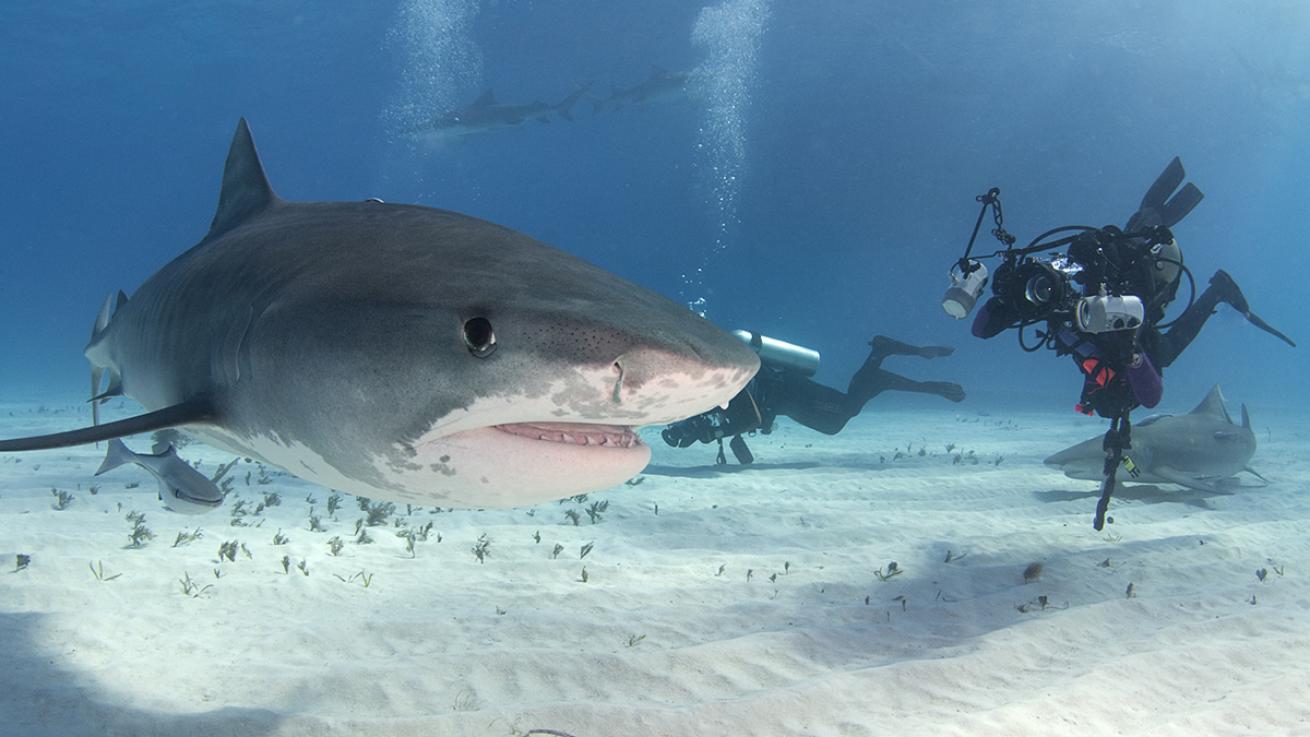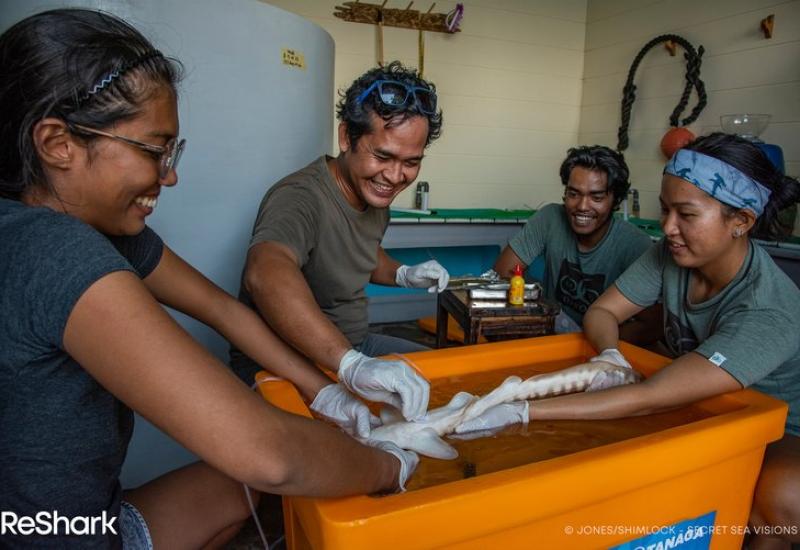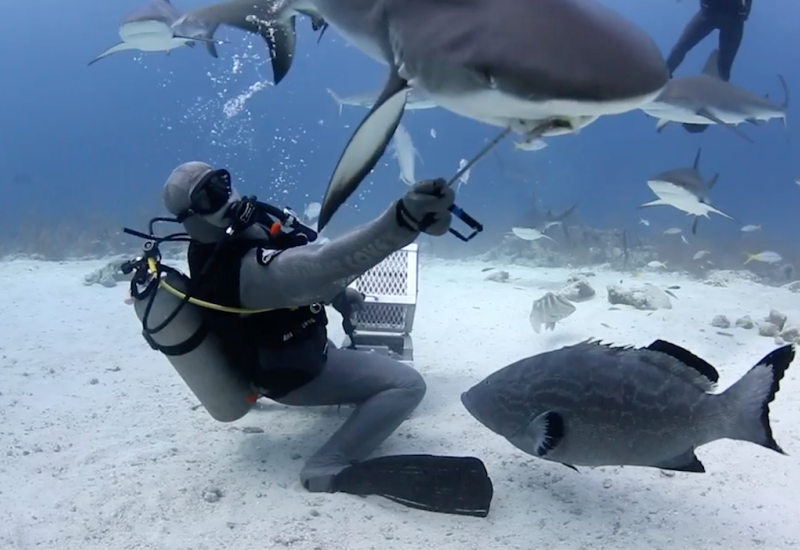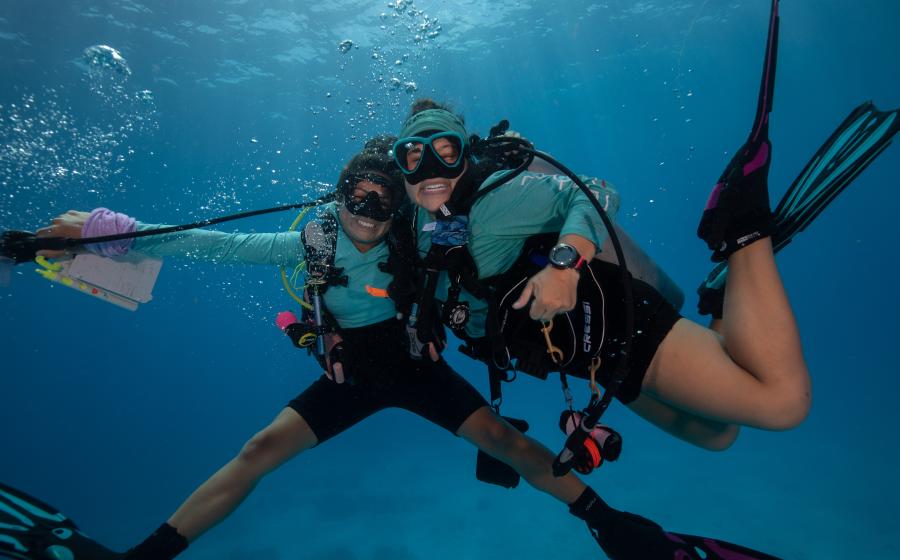Reported Shark Attacks Decline Worldwide in 2018

A Cotton Photo/shutterstock.comA diver with a tiger shark.
The number of unprovoked shark attacks on humans was far below average in 2018, according to an annual report by the University of Florida International Shark Attack File.
Worldwide, there were 66 unprovoked attacks — four of which were fatal — compared to an average of 84 incidents over the previous five years. Another 34 attacks were confirmed as provoked by humans in 2018.
What hasn’t bucked recent trends is where the incidents are happening. The United States once again saw the most unprovoked attacks last year (32), followed again by Australia (20). Half of U.S. attacks occurred in Florida.
The International Shark Attack File defines provoked attacks as those that "occur when a human initiates interaction with a shark in some way. These include instances when divers are bitten after harassing or trying to touch sharks, attacks on spearfishers, attacks on people attempting to feed sharks, bites occurring while unhooking or removing a shark from a fishing net, etc."
Read more about sharks and scuba diving here.
The report didn’t specifically state why shark attacks might have dropped off so sharply last year, but did mention that shark-attack fatalities have been trending downward for decades due to improvements in ocean rescue, medical care and increased awareness about sharks.
“Statistically, this is an anomaly,” said Gavin Naylor, director of the Florida Museum of Natural History’s shark research program, in a press release. “It begs the question of whether we’re seeing fewer bites because there are fewer sharks — that would be the glass-half-empty interpretation. Or it could be that the general public is heeding the advice of beach safety officials. My hope is that the lower numbers are a consequence of people becoming more aware and accepting of the fact that they’re sharing the ocean with these animals.”
Most attacks happened to people who were surfing or doing board sports (53 percent). Snorkelers and freedivers accounted for 6 percent of attacks, and scuba divers 5 percent.
In all, there were five shark-attack fatalities in 2018, consistent with yearly averages.
Shark attacks — especially those that are fatal — receive a lot of attention. But researchers are quick to point out that sharks pose a very low threat to humans. Billions of people participate in ocean activities each year. For perspective, sharks kill an average of six people in unprovoked attacks worldwide, while “fisheries kill about 100 million sharks and rays annually,” according to the International Shark Attack File report.
The shark interactions off the coastal United States appear to be a mixed bag for shark populations. Florida’s drop from 31 attacks in 2017 to 16 last year could be a result of shrinking blacktip shark populations, Naylor said.
On the other hand, great whites are returning to Cape Cod, Massachusetts, as a result of the Marine Mammal Protection Act, he said, which is a good thing for the species but unfortunately might have led to two great white attacks in the area.
“An increase in sharks is a symptom of restoring healthy oceans,” Naylor said. “What the public needs to do is become informed about these animals, understand their behavior patterns and listen to the guidelines issued by beach safety patrols.”










